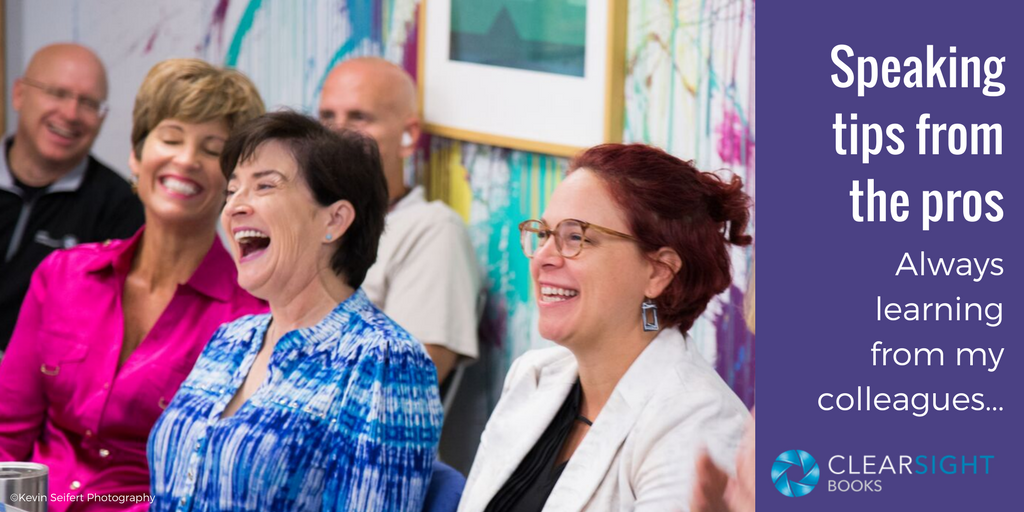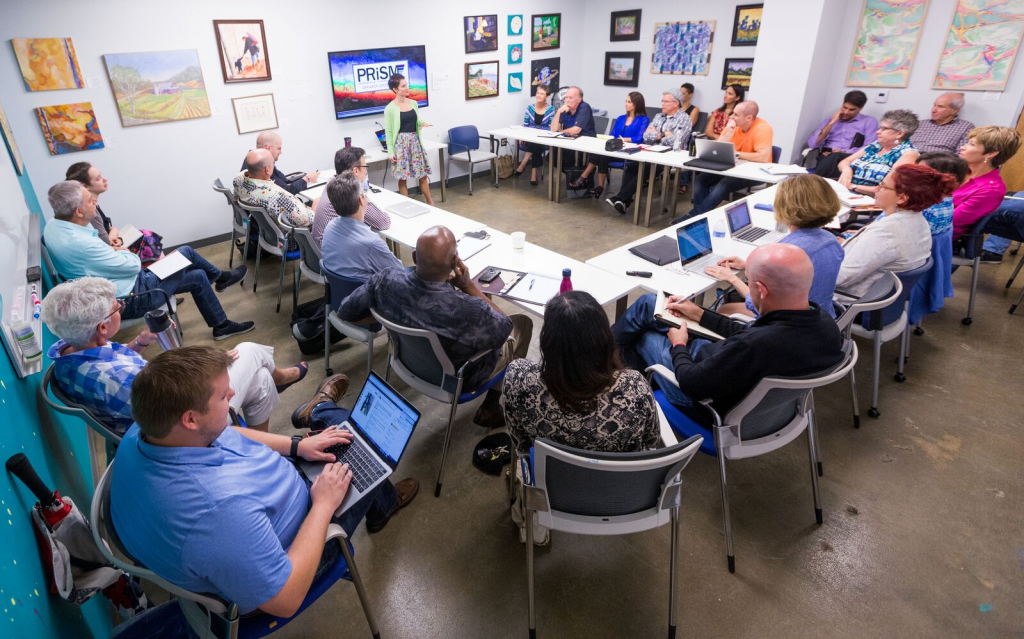 If you’ve ever blushed at a professional mistake, how much would you give to avoid a repeat performance? Whatever your profession, it helps to have colleagues you can consult and learn from. I have an editor for business writing and a small group of writers for poetry critique. For speaking, I attend a Toastmasters club weekly as well as Professionals in Speaking Mastermind, aka PRiSM, monthly.
If you’ve ever blushed at a professional mistake, how much would you give to avoid a repeat performance? Whatever your profession, it helps to have colleagues you can consult and learn from. I have an editor for business writing and a small group of writers for poetry critique. For speaking, I attend a Toastmasters club weekly as well as Professionals in Speaking Mastermind, aka PRiSM, monthly.
One of our recent PRiSM meetings was the highest attended in memory, with the topic “Oops, I can’t believe I did that!” The hour and a half was filled with laughter at the embarrassing, stupid, and just plain funny things we’d all done. But ultimately, the lessons led to some really good tips. Here are some of my favorites.
Pro Tip 1: Make your slide deck accessible in several places
One of our buddies was speaking to a government defense agency and was told not to bring technology. Not quite understanding what that really meant, he had his presentation on a flash drive—which of course he was not allowed to take past security. If only he’d thought to email the deck to the coordinator, email it to himself, or even put it somewhere in the cloud (Dropbox, Google Docs, etc.), he might have been able to access it. As it was, he gave a presentation on technology without using any technology…
Pro Tip 2: Complete technology updates well in advance
More than one person reported the agony of being ready to go on stage and realizing their computer was caught in an update cycle—or that a recent update had wiped out the system’s drivers. Aargh! Run any system updates at least a day in advance, and be sure to reboot so the full installation cycle completes. After that, test any technology you are using: Does it still work? Does the video still project? Does the audio still work?
Pro Tip 3: Plan for technology failure
I hate to even mention this tip—haven’t we all learned it by now? It doesn’t matter how well you prepare, at some point you will lose your technology. Your laptop will fail, your backup laptop will fail, the flash drive will get lost, the adapters won’t work, the power will go out. Always, always, always have a way to continue without technology—paper notes, notecards in your pocket, a flip chart and markers—whatever it takes. And remember, the technology isn’t the presentation—you are.
Pro Tip 4: Plan for other failure
While technology is a common failure point, what about possible failures? One facilitator was in the middle of teaching a meditative technique to a large workshop when a jackhammer started pounding next door. Aack! After a moment’s panic, she instructed the group to think of a noisy location such as a bar or restaurant where they’d really had to focus on the person they were with in order to hold a conversation. The exercise became more difficult than she had originally planned, but the group found tremendous use in it. Of course, you can’t mitigate every possible risk, but what are your critical elements?
Pro Tip 5: Set the right attitude for the audience
Let’s say you lose your voice—or it’s not a strong as usual—and there’s no time to find a substitute speaker. What’s your attitude on stage? Do you croak out, “OMG I lost my voice”? No! You say, “I’m a professional speaker; things like this happen all the time.” Your take-it-in-stride attitude is fundamental to the audience’s attitude. Don’t let the audience feel like they are getting a lesser quality presentation just because your voice is not 100%.
Pro Tip 6: The audience doesn’t have to know you goofed
The speaker didn’t use slides and occasionally would lose his train of thought. He would say to the audience, “Oh, I have the funniest story to tell you.” He’d get a card out of his pocket, look at it to find his place, then say, “Oh, I will tell you that story later.” And the audience was none the wiser…
Pro Tip 7: Humor is a great recovery tool
Dreadfully afraid of falling as he ascended the stairs to the stage, the speaker prepared and prepared to avoid falling—and to handle it if he did. Sure enough, as he climbed the steps for his big presentation, he fell flat on his face. He quickly got up, turned to the audience, and said, “I practiced that all night—how did I do?” He got a standing ovation.
Professionals in Speaking Mastermind (PRiSM) is a rowdy bunch of speakers who gather in Research Triangle Park, NC, on a monthly basis to share wisdom, tips, and sad stories of lessons learned. Meet the whole gang here. Why, yes, yes I DO speak! Just check out my speaking page.

The PRiSM Gang at Work (& Play)
Photos courtesy of Kevin Seifert Photography.

